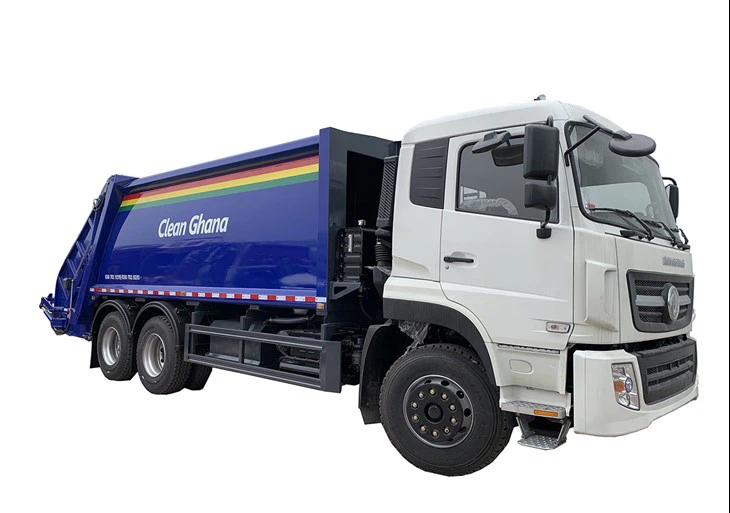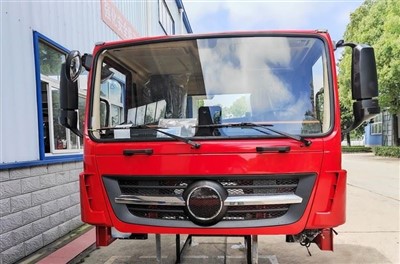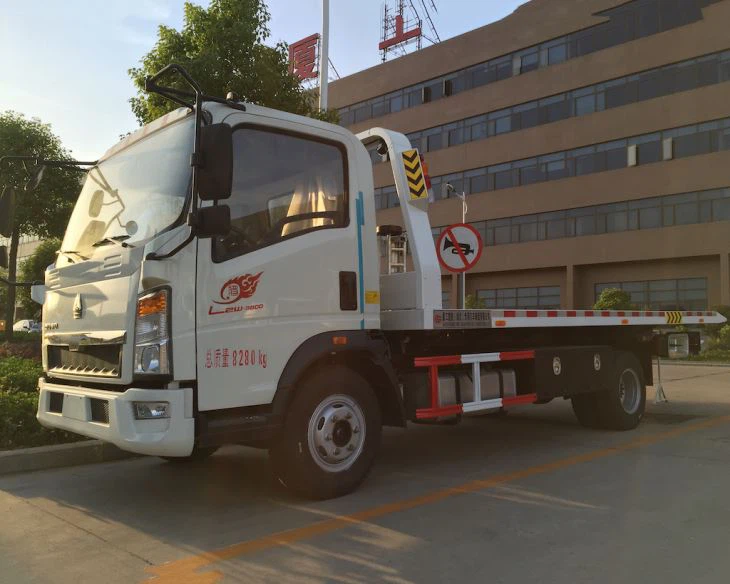Everything You Need to Know About Freezer Lorries

Introduction
In the world of logistics and transportation, freezer lorries, also known as refrigerated lorries, play an essential role in ensuring the safe and efficient delivery of temperature-sensitive goods. These vehicles are specifically designed to transport perishable items, such as food, pharmaceuticals, and other temperature-controlled products, across varying distances. This article aims to provide a comprehensive understanding of freezer lorries, including their types, benefits, operating principles, maintenance, and much more. Whether you are in the logistics industry or simply curious about how your food gets from the farm to your table, this article will shed light on the vital function of freezer lorries.
What is a Freezer Lorry?
A freezer lorry is a type of heavy-duty vehicle equipped with a refrigeration unit designed to maintain a specific cool temperature during transport. These lorries are crucial for businesses that handle perishable goods, ensuring that products remain fresh and safe for consumption. The capacity of these vehicles can vary significantly, with some able to transport small loads while others can carry multiple tons of cargo.
Different Types of Freezer Lorries
Freezer lorries come in various types depending on their size, load capacity, and the specific transportation needs of businesses. The most common types include:
1. Standard Freezer Lorries
Standard freezer lorries are the most common type used for transporting food products. They are typically medium to large-sized vehicles that can accommodate various types of cargo, from packaged goods to whole pallets of food items.
2. Large-Scale Refrigerated Trucks
These are designed for high-volume transport and are often used by wholesalers and retailers. They offer a larger cargo area, enabling businesses to transport more goods at once, which is particularly useful for longer routes and bulk deliveries.
3. Smaller Delivery Vans
These refrigerated vans are suitable for local deliveries. Smaller businesses and restaurants often rely on these vans to transport fresh ingredients and products to their customers or other businesses.
4. Multi-Temperature Freezer Lorries
Some freezer lorries are equipped with multiple compartments, allowing for the transport of goods that require different temperature settings. This flexibility is especially useful for companies that deal with a variety of perishable goods.
Benefits of Using Freezer Lorries
The benefits of employing freezer lorries in your supply chain are numerous and can significantly impact the quality and safety of your products. Here are some of the main advantages:
1. Enhanced Product Safety
Keeping temperature-sensitive products at controlled temperatures minimizes the risk of spoilage and contamination, ensuring that items are safe for consumption.
2. Extended Shelf Life
Maintaining appropriate temperatures helps prolong the shelf life of perishable goods. This is crucial not only for food products but also for pharmaceuticals that may have strict storage requirements.
3. Versatile Transport Options
Freezer lorries can accommodate a wide range of products, making them a versatile choice for various industries, including food service, pharmaceuticals, and agriculture.
4. Increased Business Efficiency
With the ability to transport products over long distances without compromising quality, businesses can streamline their supply chain and improve delivery times, leading to greater customer satisfaction.
Operating Principles of Freezer Lorries
Understanding how freezer lorries operate is vital for businesses looking to utilize them effectively. Here are the key components of a freezer lorry:
1. Refrigeration Unit
The refrigeration unit is the heart of a freezer lorry. It works similarly to a household refrigerator, using a refrigerant to absorb heat from the cargo area and expel it outside, keeping the interior cool. These units can be powered by various sources, including the vehicle’s engine or an external power supply.
2. Insulated Cargo Area
The cargo area is built with insulation materials to minimize heat transfer. This insulation helps maintain the desired temperature inside the lorry, preventing external temperatures from affecting the products being transported.
3. Temperature Monitoring System
Many modern freezer lorries come equipped with sophisticated temperature monitoring systems. These systems provide real-time data on internal temperatures, allowing drivers and logistics managers to ensure that products remain within safe temperature ranges throughout the journey.
Key Considerations When Choosing a Freezer Lorry
When selecting a freezer lorry, several factors should be taken into account to ensure that you are making the right choice for your business:
1. Type of Goods to be Transported
Identify the types of products you will be transporting. Consider their temperature requirements and whether you need a specialized lorry, such as one with multiple temperature zones.
2. Load Capacity
Evaluate the volume of goods you need to transport regularly. Ensure that the lorry’s capacity meets your business needs without compromising on efficiency.
3. Delivery Routes
Consider the distance and type of routes you will be traveling. Some lorries are better suited for long-haul deliveries, while others are designed for short, localized trips.
4. Maintenance and Reliability
Ensure that the freezer lorry you choose has a good track record for reliability and ease of maintenance. Regular service is essential to keep the refrigeration unit functioning properly.
Maintenance Tips for Freezer Lorries
1. Regular Inspections
Conduct routine inspections of the refrigeration units and the insulated cargo area. Look for signs of wear and tear, leaks, or any issues that may affect performance.
2. Clean and Sanitize
Regularly clean and sanitize the cargo area to prevent spoilage and contamination. This practice is especially important when switching between different types of goods.
3. Monitor Temperature Settings
Use temperature monitoring systems to regularly check and record temperatures during transport. Address any discrepancies immediately to avoid compromising product safety.
4. Schedule Routine Service
Ensure that the refrigeration unit undergoes routine servicing and maintenance checks as recommended by the manufacturer. This practice can prevent unexpected breakdowns and costly repairs.

Cost Considerations for Operating a Freezer Lorry
When it comes to operating a freezer lorry, several costs must be considered:
1. Purchase or Lease Costs
Depending on your budget and business needs, you can either purchase or lease a freezer lorry. Leasing may be more suitable for businesses that require flexibility or are just starting out.
2. Fuel Expenses
Freezer lorries typically consume more fuel than standard vehicles due to the added weight of the refrigeration unit. Be sure to consider fuel expenses in your operational budget.

3. Maintenance and Repair Costs
Ongoing maintenance is necessary to keep the lorry in good working condition, so factor these costs into your budget as well.
4. Insurance Costs
Given that freezer lorries transport perishable goods, insurance costs may be higher than for standard transportation vehicles. It’s important to secure comprehensive coverage to protect your investments.
Regulations and Guidelines for Freezer Lorries
There are regulations in various countries regarding food safety and the transport of perishable goods. Businesses must be aware of these regulations to remain compliant:
1. Food Safety Regulations
In many countries, there are laws governing the safe transportation of food products. Specific temperature requirements must be maintained during transit to prevent foodborne illnesses.
2. Vehicle Standards
Freezer lorries must meet certain vehicle standards, including those related to insulation and refrigeration capabilities. Familiarize yourself with your country’s regulations regarding vehicle specifications.
3. Driver Training
Ensure that drivers are trained in the proper handling and transport of perishable goods. They should also be familiar with emergency response procedures for temperature failures.
Practical Examples of Freezer Lorries in Use
To better understand the importance of freezer lorries, let’s look at some practical examples:
1. Grocery Store Deliveries
Local grocery stores rely on freezer lorries to transport fresh produce, dairy products, and frozen items. These deliveries ensure that products are kept at safe temperatures, reducing waste and ensuring quality.
2. Pharmaceutical Transportation
Pharmaceutical companies use freezer lorries to deliver medications requiring strict temperature controls. These lorries are equipped with multi-temperature zones to accommodate different types of pharmaceuticals.
3. Food Trucks
Many food trucks utilize smaller freezer vans to transport fresh ingredients and prepared meals to various events and locations. This allows them to serve high-quality food consistently.
FAQs About Freezer Lorries
1. What temperature should a freezer lorry maintain?
This depends on the goods being transported. Generally, food should be kept at 0°F (-18°C) or lower, while other products, such as pharmaceuticals, may require specific temperature ranges.
2. How often should a freezer lorry be serviced?

Freezer lorries should be serviced regularly, typically every 3 to 6 months, depending on usage and manufacturer recommendations.
3. Can freezer lorries operate in extreme temperatures?
Yes, freezer lorries are designed to operate in extreme temperatures. However, their efficiency can be affected, and it is vital to monitor temperatures closely in such conditions.
4. Are there different types of refrigeration units for freezer lorries?
Yes, there are various types of refrigeration units, including direct expansion systems and cryogenic systems, each serving different operational needs.
5. How do I choose the right freezer lorry for my business?
Consider the type and volume of goods, delivery routes, and temperature requirements. It’s also essential to evaluate your budget and whether you prefer to purchase or lease.
6. What should I do if the refrigeration unit fails during transport?
Immediately check the temperature of the goods. If products have reached unsafe temperatures, they should not be delivered. Contact a repair service and follow emergency protocols to secure the cargo.
